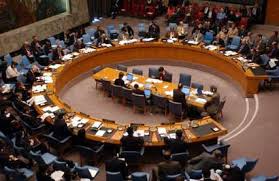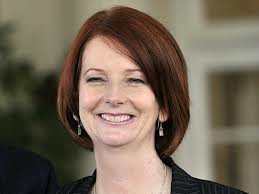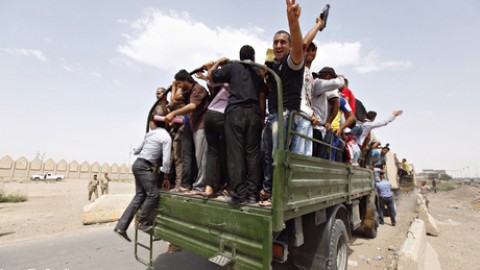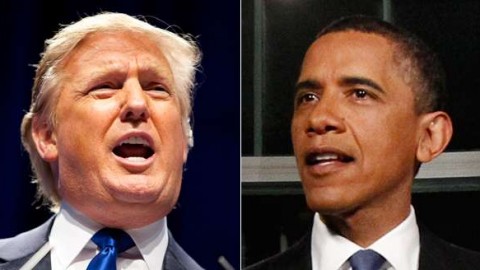Iraq crisis is getting complicated as conflicts between the Sunni led militant outfit ISIS and the Iraqi Shiite Muslims intensified. According to the latest information, two more towns were captured by the ISIS on Sunday making the number of captured towns four. Qain, Rawah and Anah in Anbar province were seized.
 Al Jazeera’s correspondent reported from Baghdad that there is significant ISIS movement in Anbar on Sunday and that the province is increasingly coming under the control of fighters. He further reported, “After taking over Qaim, Rawah and Anah, armed groups are now advancing to the next town, Haditha in the west of Ramadi city, and are negotiating with tribal leaders to enter there peacefully. Army forces have left Haditha and have moved to the town of Khan al-Baghdadi and the military base of Ein al-Asad.”
Al Jazeera’s correspondent reported from Baghdad that there is significant ISIS movement in Anbar on Sunday and that the province is increasingly coming under the control of fighters. He further reported, “After taking over Qaim, Rawah and Anah, armed groups are now advancing to the next town, Haditha in the west of Ramadi city, and are negotiating with tribal leaders to enter there peacefully. Army forces have left Haditha and have moved to the town of Khan al-Baghdadi and the military base of Ein al-Asad.”
Reports also claimed that two border crossings were also captured by the Sunni militants. Associated Press reported that the military officials said that as they pressed on with their offensive in one of Iraq’s most restive regions. The capturing of these two towns has currently led to a major set-back to the Iraq’s Shiite Prime Minister.
An airstrike was conducted by the government in Iraq, on Sunday. Officials claimed that 40 militants were killed in this attack. But people on the ground, who witnessed the whole incident, told that a petrol pump was hit as a result of which some civilians died.
The main dispute in Iraq is said to be between those who want Iraq to join the US camp and those who seek an independent Iraq.
- ISIS (Islamic State in Iraq and the Levant)
ISIS is a breakaway militant outfit of Al-Qaeda terrorist organization. ISIS is an unrecognized state and active Jihadist militant group in Iraq and Syria.
This terrorist organization is active from 2003 and their areas of operations include Iraq, Turkey, Syria and Lebanon. ISIS has its headquarters in in Iraq at Baqubah and Ar-Raqqah in Syria.
In its unrecognized self-proclaimed status as an independent state, it claims the territory of Iraq and Syria, with implied future claims intended over more of the Levant, including Lebanon, Israel, Palestine, Jordan, Cyprus, and Southern Turkey.
The group in its original form was composed of and supported by a variety of insurgent groups, including its predecessor organisation, the  MujahideenShura Council, Al-Qaeda in Iraq (AQI), Jaysh al-Fatiheen, Jund al-Sahaba, KatbiyanAnsar Al-TawhidwalSunnah, Jeish al-Taiifa al-Mansoura and other groups that profess Sunni Islam. The original aim of ISIS was to establish a caliphate in the Sunni-majority regions of Iraq. Its aims later expanded to include controlling Sunni-majority areas of Syria as a result of the participation of ISIS in the Syrian Civil War and spillover from the Syrian Civil War.
MujahideenShura Council, Al-Qaeda in Iraq (AQI), Jaysh al-Fatiheen, Jund al-Sahaba, KatbiyanAnsar Al-TawhidwalSunnah, Jeish al-Taiifa al-Mansoura and other groups that profess Sunni Islam. The original aim of ISIS was to establish a caliphate in the Sunni-majority regions of Iraq. Its aims later expanded to include controlling Sunni-majority areas of Syria as a result of the participation of ISIS in the Syrian Civil War and spillover from the Syrian Civil War.
“This is not a terrorism problem anymore”, says Jessica Lewis, an expert on ISIS at the Institute for the Study of War, a Washington think tank, “This is an army on the move in Iraq and Syria, and they are taking terrain. … They have shadow governments in and around Baghdad, and they have an aspirational goal to govern. I don’t know whether they want to control Baghdad, or if they want to destroy the functions of the Iraqi state, but either way the outcome will be disastrous for Iraq.” Jessica Lewis was a US Army intelligence officer in Iraq and Afghanistan. (Inputs from Wikipedia)
The current crisis in Iraq has led to tremendous pressure on Iraq Prime Minister Nouri al-Maliki.
Fox News reported that Iraq’s Shiite prime ministerNouri al-Maliki, embattled by the militant offensive sweeping his country’s north, faces growing calls for him to be forced out of office as Al-Qaeda inspired insurgents press closer to Baghdad.
Let’s not forget that Spectralhues on June 17th had reported that The United States could take assistance from Iran to stop Sunni Jihadis in Iraq. John Kerry had told Yahoo News, “I think we are open to any constructive process here that could minimize the violence, hold Iraq together — the integrity of the country — and eliminate the presence of outside terrorist forces that are ripping it apart.”
Meanwhile, reports are also coming in that the top Iranian leaders are against the US intervention. Supreme Leader of Iran and a Shia Cleric, Ayatollah Ali Khamenei said that he is against the intervention of the United States, The Guardian reported.
The Guardian quoted him who said, “We strongly oppose the intervention of the US and others in the domestic affairs of Iraq. The US aims to bring its own blind followers to power since the US is not happy about the current government in Iraq.”
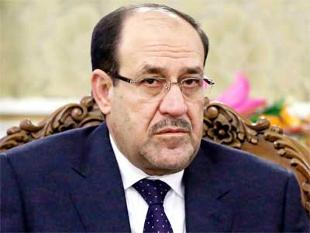 The Times of India reported that Grand Ayatollah Ali al-Sistani, the most respected voice for Iraq’s Shia majority, on Friday joined calls for al-Maliki to reach out to the Kurdish and Sunni minorities.
The Times of India reported that Grand Ayatollah Ali al-Sistani, the most respected voice for Iraq’s Shia majority, on Friday joined calls for al-Maliki to reach out to the Kurdish and Sunni minorities.
A few days back, 40 Indians were abducted from Iraq and were taken to an undisclosed location. India had opened up channels through Saudi Arabia to get the abducted Indian men back.
US state secretary John Kerry arrived in Iraq today even as Iraq is going through a crisis. He is reportedly going to meet Iraq’s Prime Minister Noori al-Maliki, foreign Minister and leaders from Shiite and Sunni.
Tags: Iran Iraq Iraq crisis Iraq crisis 2014 ISIL ISIS latest news from Iraq Noori al-Maliki Shiite vs Sunni Sunni militant US


